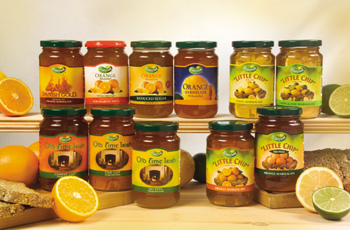News briefs: Jacob Fruitfield, additives, own label, and Mars

Jacob Fruitfield operating profit up, ‘No additives’ and Own label surge, and Mars and Wrigley make super confectionery company
10 October 2008
Jacob Fruitfield operating profit up 16% on 2006
After what has evidently been a successful programme of restructuring, , up 16% on 2006 figures. Its published results show that turnover was flat at €90.6 million while after-tax losses shrank from €10.1 million to €9.3.
In spite of the success of the restructuring at its Tallaght facility, which is the ancestral home of the business, Jacob Fruitfield has announced that it intends to end production at the Belgard Road site by April next year, resulting in the loss of some 220 jobs. As of mid 2009, the manufacturing of Jacob’s Mallows and Fig Rolls will be outsourced to Britain, Portugal and Malta. Production of Jacob Fruitfield jams and sauces will continue in Drogheda for the time being, as will its Cork biscuit factory continue to operate.
‘No additives’ selling most
According to recent research by market analyst Mintel, ‘no additives’ and ‘no preservatives’ are leading NPD and innovation, and have been the main focus of the majority of European and international launches in recent times.
The free-from claims amounted to 23% of new product propositions in Europe from January to September this year, and 22% of product launches globally. According to Mintel, ‘organic’ is the second most popular claim for current European launches, followed by ‘low/no/reduced fat’. Meanwhile in the US, Kosher products have seen a move to the mainstream, gaining popularity among vegetarians and allergy sufferers also.
Own label and health rising
New research by Nielsen confirms that private label products are experiencing rapid growth, particularly on account of consumers seeking to reduce spend during tougher economic times. Tom Pirovano, director of Nielsen’s industry insights, commented: “Private label offerings have evolved from the cheap alternative to national brands into distinctive, high-quality products with a unique value proposition that retailers strategically deploy to enhance the image of their store.”
In particular, own brands featuring ‘natural’ or health and wellness claims, such as ‘free from’, ‘wholegrain’ or ‘antioxidant’, are experiencing double digit growth, and have customers “spending up within the private label categories.”
Mars and Wrigley make super confectionery company
Final approval for the merger of Mars and Wrigley was granted lasted month, leading to the creation of a €15 billion confectionery giant. Shareholders of The Wrigley Company, now part of the world’s number one confectionery maker, reportedly “overwhelmingly approved the adoption of the merger agreement with Mars”, in a move which has ousted Cadbury from its leading position in the global market.
Following the news of Mars and Wrigley, reports have emerged that Nestlé and US chocolate brand Hershey are currently in talks about a possible merger, or even a stake-sale. The Telegraph reported that Hershey is working on selling a 25% stake in itself to Nestlé, with an option for Nestlé to buy the remaining 75% stake within the next two years.



 Print
Print





Fans 0
Followers